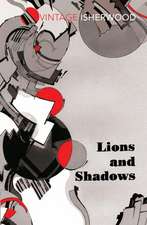Neoliberal Bonds: Undoing Memory in Chilean Art and Literature: Transoceanic Series
Autor Fernando A. Blancoen Limba Engleză Paperback – 30 dec 2015
Fernando A. Blanco’s Neoliberal Bonds: Undoing Memory in Chilean Art and Literature analyzes the sociocultural processes that have reshaped subjectivities in post-Pinochet Chile. By creatively exploring the intersections among memory, gender, post-trauma, sociology, psychoanalysis, and neoliberalism, Neoliberal Bonds draws on Lacan’s notion of perversion to critique the subjective fantasies that people create to compensate for the loss of the social bond in the wake of a dictatorship founded on individualism, competition, and privatization.
Neoliberal Bonds vehemently criticizes how Chile’s transition governments, through a series of political and legal maneuvers, created the state’s official memory narratives. Blanco argues that the state, the media, academia, and the neoliberal market colluded to colonize and mediatize the “memory scene.” In contrast to these official narratives, Neoliberal Bonds analyzes alternative memory accounts within the visual arts and literature that push back against the state, its institutions, and its economic allies. These alternative memory narratives highlight the ontological fracture of the new neoliberal subjects; they also bring into sharp relief the urgent need for democratization that still poses a challenge to Chile a quarter century after its “transition to democracy” began.
Neoliberal Bonds vehemently criticizes how Chile’s transition governments, through a series of political and legal maneuvers, created the state’s official memory narratives. Blanco argues that the state, the media, academia, and the neoliberal market colluded to colonize and mediatize the “memory scene.” In contrast to these official narratives, Neoliberal Bonds analyzes alternative memory accounts within the visual arts and literature that push back against the state, its institutions, and its economic allies. These alternative memory narratives highlight the ontological fracture of the new neoliberal subjects; they also bring into sharp relief the urgent need for democratization that still poses a challenge to Chile a quarter century after its “transition to democracy” began.
Preț: 277.95 lei
Nou
Puncte Express: 417
Preț estimativ în valută:
53.18€ • 55.73$ • 43.97£
53.18€ • 55.73$ • 43.97£
Carte tipărită la comandă
Livrare economică 12-26 aprilie
Preluare comenzi: 021 569.72.76
Specificații
ISBN-13: 9780814252161
ISBN-10: 0814252168
Pagini: 192
Dimensiuni: 152 x 229 x 15 mm
Greutate: 0.3 kg
Ediția:1
Editura: Ohio State University Press
Colecția Ohio State University Press
Seria Transoceanic Series
ISBN-10: 0814252168
Pagini: 192
Dimensiuni: 152 x 229 x 15 mm
Greutate: 0.3 kg
Ediția:1
Editura: Ohio State University Press
Colecția Ohio State University Press
Seria Transoceanic Series
Recenzii
“Neoliberal Bonds is a unique and vital contribution to the scholarship on post-dictatorial memory in Chile. With a diverse theoretical bibliography and analyses that are sensitive and complex, this is one of the few studies to cross gender, sexuality, and memory studies in a convincing, integrated, and enlightening way. Neoliberal Bonds demands to be known by U.S. Latin Americanists for the nuanced way in which it explores neoliberalism's regulatory mechanisms as they interface with demands for citizenship, equality, recognition, and rights.” —Michael J. Lazzara, University of California, Davis
Notă biografică
Fernando A. Blanco is Assistant Professor of Spanish at Bucknell University.
Cuprins
Introduction
Chapter 1––The History of a State of Things
Chapter 2––Perversion and Subjectivity: The Possible Worlds
Chapter 3––Chilean Visual Arts: From the Perversion of History to the Hysteria of Childhood
Chapter 4––Literature and Homoscapes: Changes in the Status of Subjectivity
Conclusion
Chapter 1––The History of a State of Things
Chapter 2––Perversion and Subjectivity: The Possible Worlds
Chapter 3––Chilean Visual Arts: From the Perversion of History to the Hysteria of Childhood
Chapter 4––Literature and Homoscapes: Changes in the Status of Subjectivity
Conclusion
Descriere
Analyzes alternative memory accounts within the visual arts and literature that push back against the state, its institutions, and its economic allies





















